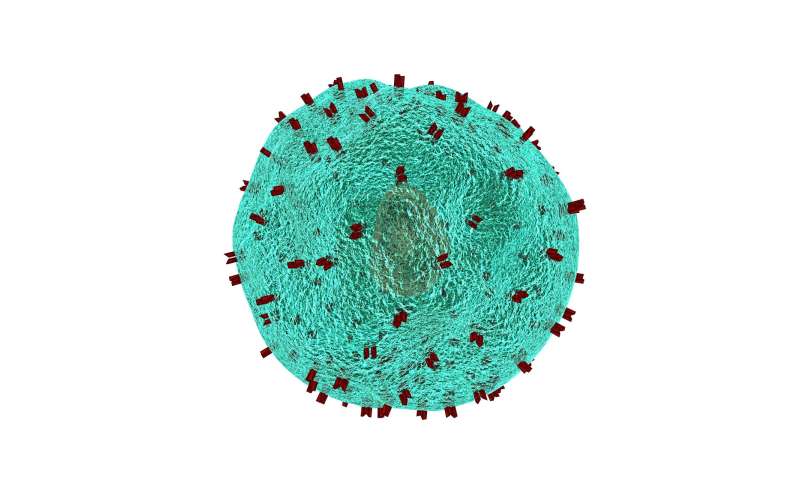Home » Health News »
Muscles support a strong immune system

In the fight against cancer or chronic infections, the immune system must be active over long periods of time. However, in the long run, the immune defense system often becomes exhausted. Scientists at the German Cancer Research Center (DKFZ) have now found initial evidence in mice that skeletal muscles help to keep the immune system functional in chronic diseases.
In many cases, severe weight loss and a decrease in muscle mass are the result of cancer or dangerous infections. In addition to this process known as cachexia, patients often suffer from a weakened immune system. One of the reasons for this is a loss of function of a group of T-cells, whose task it is to recognize and kill virus-infected cells or cancer cells.
The processes leading to loss of T-cell activity are still largely unexplained. However, first indications suggest that there is a connection with cachexia. “It is known that T-cells are involved in the loss of skeletal muscle mass. But whether and how, in turn, skeletal muscles influence the function of the T-cells is still unclear,” explains Guoliang Cui from the DKFZ.
To find out, the scientists infected mice with lymphocytic choriomeningitis virus (LCMV). This method is a widely used model system to study the course of acute or chronic infections in mice. The researchers then analyzed the gene expression in the skeletal muscles of the animals and found that in chronic infections, the muscle cells release an increased amount of the messenger substance interleukin-15. This cytokine causes T-cell precursors to settle in the skeletal muscles. As a result, they are spatially delimited and protected from contact with the chronic inflammation.
“If the T-cells, which actively fight the infection, lose their full functionality through continuous stimulation, the precursor cells can migrate from the muscles and develop into functional T-cells,” said Jingxia Wu, lead author of the study. “This enables the immune system to fight the virus continuously over a long period.”
Source: Read Full Article


